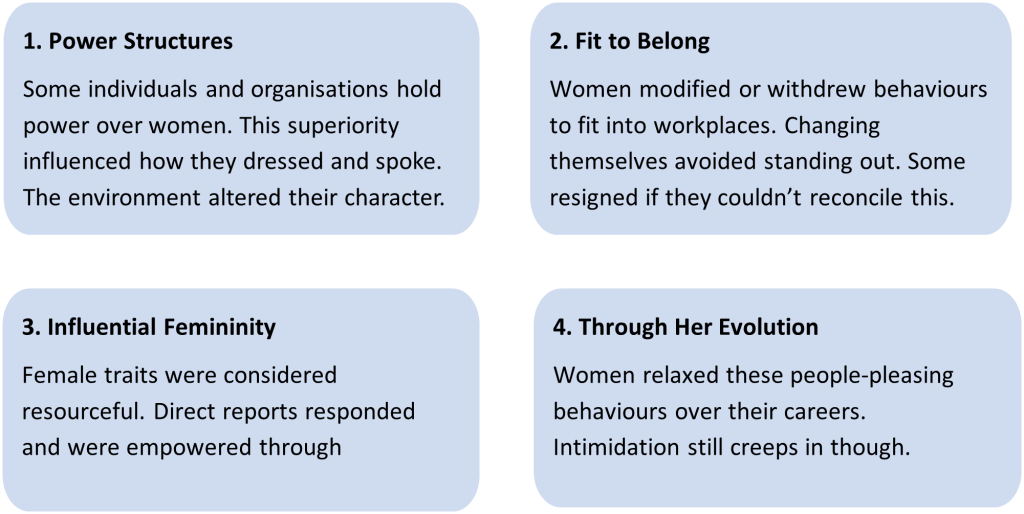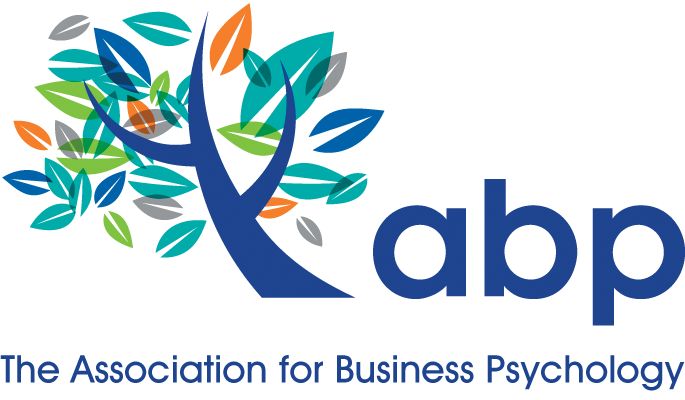Lisa K. Desai, Psy.D. Clinical and Consulting Psychologist Chief Behavioral Health Officer, MindWise Innovations In the business world, and in life, we regularly talk about the importance of teamwork. But why is teamwork highly valued? We know from literature spanning organizational theories and social psychology…

Authored by Certified Business Psychologist Laura Howard.
Certified Business Psychologist, Laura Howard, reflects on the webinar she recently delivered to ABP members. Below she outlines the main findings of her published research uncovering systematic barriers women face when being authentic as leaders. Importantly, she gives several suggestions for ways organisations, executives and allies can address inequality limiting women’s potential. Laura is an organisational psychologist, ‘women in leadership’ specialist and author. She’s passionate about helping businesses to develop equitable teams for greater performance and employee job satisfaction.
Fewer women than men still occupy director positions; in some organisations, women occupy as few as 30% of the top jobs (Catalyst, 2021). A lack of flexible working and outdated gender stereotypes can prove difficult for women to advance. Against these conditions, women may feel they fundamentally alter their characteristics to fit in and progress. It is this challenge to be authentic that my yearlong research project addressed.
Society suggests we should be our real selves. Leaders who connect with their audiences by being true are rewarded. But what if it was unsafe for you to be yourself? Representing a marginalised group or holding an opposing view can leave you feeling isolated. Instances where women are considered unleader-like still happen.
Female public figures come under greater scrutiny still. Jacinda Arden, New Zealand’s former Prime Minister was authentic but later left the post knowing she couldn’t continue. Recently Youtube’s CEO Susan Wojcicki resigned to pursue other passions outside work (CNBC, 2023). This makes for startling reading if Westen economies are ever going to reach gender workplace equity.
These factors, along with my own experience of being a women leader in traditional organisations, led me to question how leaders develop and approach being authentic. I interviewed 13 senior executives and company owners gathering hours of recording of women’s powerful experiences.
Overriding, the women shared similar accounts describing careers where they have experienced discrimination. Women regularly struggled to be themselves since masculine precedents and industries often inhibited them. I discovered four themes that tied the women’s experiences together.

Women recalled experiences of being desperate to quality in their profession, so much so that they avoided challenging bad behaviours from male bosses. I heard examples of de-motions; women who attempted to protect their employees from unethical sales practices were side-lined. Women remained at a distance when delivering bad news since this felt unnatural.
Others switched their behaviour dependent on circumstances. Male managers often instilled supposed professional behaviours in women leaders, suggesting they change their emotional responses and appearance accordingly.
Women were most enthusiastic about work when they developed trust with their teams. They enjoyed pursuing their personal values through their work. Women remembered the belief instilled in them by their parents and family; they carried this with them.
Many found success through awards or board nominations. These along with talent programmes acted as catalysts to enable women to feel secure in their capabilities and themselves.
My research indicates that women continue to face barriers to being themselves, but if they go on to behave true to who they are they can have better experiences at work. The research makes the following recommendations to workplaces to improve the situation:
For women in workplaces:
- Feeling misaligned with work? Likely, the problem is not with you but the traditional makeup of the organisation, culture, and leadership.
- Develop and contribute to a women’s staff network. Help others share problems and solutions.
- Co-mentor a younger colleague to support them and learn from your experience
- If you are a successful women leader role-model positive behaviours and those that don’t necessarily imitate men
- Access a coach or confidante to support you with your career goals
- Develop and access education programmes to support women, but not to fix them, to grow them
For male allies in workplaces:
- Avoid holding women to higher standards than men. Have objective performance measures.
- Design selection and assessment to broaden the criteria, especially for internal and promotion roles
- Challenge oppressive behaviours that limit women leaders’ authenticity
- Develop inclusive cultures where marginalised groups feel safe
Laura is a psychologist and researcher. For more details of her work go to thecontentedworkplace.co



